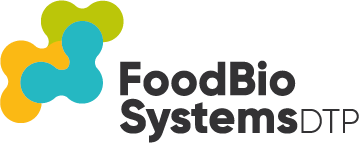PhD Opportunities
We are not currently advertising PhD studentships. Future opportunities will be advertised on this page.
Previous applicant success rates
Success rates for home and international student applicants to the DTP (2021-24) are outlined below:
| Cohort | Number of international student applicants | % international applicants awarded a studentship | Number of home student applicants | % home student applicants awarded a studentship |
| 2020 | n/a | n/a | 125 | 24% |
| 2021 | 467 | 1.3% | 148 | 13.5% |
| 2022 | 501 | 1.4% | 86 | 23% |
| 2023 | 774 | 0.9% | 90 | 26% |
| 2024 | 1176 | 0.9% | 86 | 26% |
Since 2021, the DTP can allocate a maximum of 30% of its funding to international students each year. We have recruited the maximum number of international students in 2024 so any further projects will be available to home student applicants only.
How we select our PhD students
Assessment criteria
In our application form, we ask applicants to provide information about their academic qualifications, research experience and transferable skills. It is essential that all applicants (including those applying for a guaranteed interview) provide full answers in their written application. Selection panel review of written answers and interview performance both contribute to the decision on funding. The table below shows what essential criteria the DTP is looking for in our PhD student candidates and where in the selection process we assess those criteria.
| Essential Selection Criteria | Stage Assessed | ||
| Shortlisting | Interview | Selection Panel review of application form answers | |
| Academic qualifications and background | x | x | |
| Academic and technical understanding of the research topic presented during the interview | x | ||
| Project specific research experience and technical skills | x | x | |
| General research experience and technical skills | x | x | |
| Ability to relate own skills to the proposed PhD project | x | ||
| Transferable skills | x | x | x |
| Understanding of the UK agri-food sector | x | x | |
| Motivation for choosing the FoodBioSystems DTP | x | x | |
| Awareness of how this PhD fits into own career plans | x | x | |
Selection process
Applications received before the closing date are checked for academic and funding eligibility. The DTP office checks all applications and screens out any candidates who are not eligible for funding (e.g. all applicants with international student status or any home students whose applications are either incomplete or whose academic qualifications do not meet the standard required for a DTP studentship (minimum of a BSc honours degree (2.1) or its international equivalent).
Eligible applications are considered in two stages:
Shortlisting
Eligible applications are anonymised and then considered by the PhD project supervisors. They mark the application answers against the assessment criteria. At this stage supervisors do not know the name, contact details or degree-awarding university of applicants. The four highest scoring candidates for each project will be invited to interview.
Interviews and selection panel assessment
Interviews
If your application is shortlisted you will receive an invitation to an online interview (on Skype, Teams or Zoom). As part of the interview, you will be asked to give a five-minute research presentation on a piece of research that you have conducted. This will be followed by five minutes for questions about the presentation. During the remainder of the interview, additional questions will explore:
- Your motivation to do a PhD with the FoodBioSystems DTP
- How your skills and experience prepare you for the specific project
- Other questions about impact of the research, problem solving skills and career plans
Selection panel assessment
If you are selected for an interview, a panel of reviewers from the DTP Selection Committee will also assess the written answers from your application form. They will not know your name, contact details or degree-awarding university at this stage.
Selection panel meeting
Three members of the DTP Selection Committee will meet to make the final decision on project allocation, considering applicants’ performance at interview and reviewer assessments of written answers.

